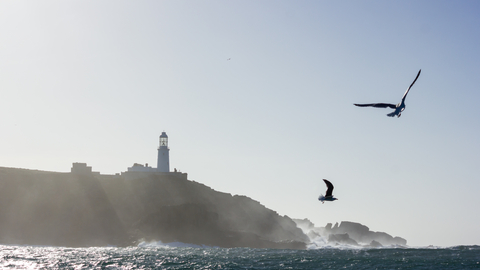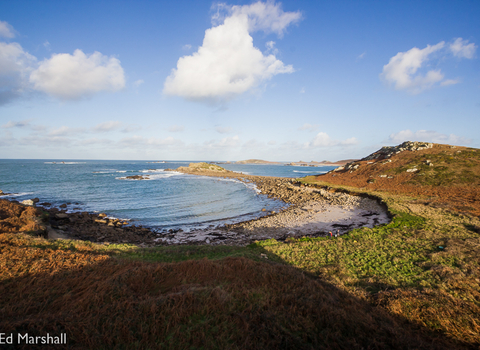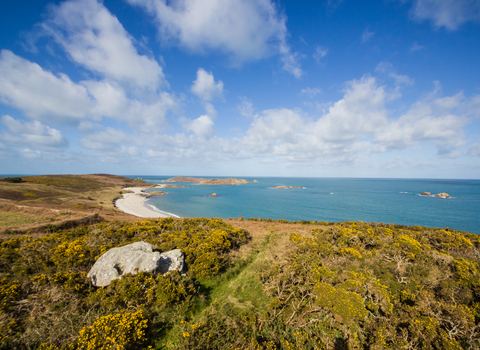
Pentle Bay to Round Island
Location
Know before you go
Dogs
at the boat operator's discretion
When to visit
Opening times
Open year roundBest time to visit
Spring & SummerAbout the reserve
Pentle Bay, Tresco, is undoubtedly one of the most stunning beaches found on the archipelago. The shallow waters go a pale turquoise and sparkle in the sunshine, whilst the vast beach stretches away in front of you. This beautiful area is part of a larger SSSI complex including several offshore islands like Merrick Island and Round Island, which are particularly important for the breeding seabird colonies. Round Island is particularly important for breeding populations of the enigmatic storm petrel.
The other offshore islands have also been historically important for breeding seabirds, particularly roseate and common terns, the latter also known to nest within the lichen-rich heathland of Appletree Banks SSSI on Tresco. Sadly, roseate terns haven't bred around the islands for several years.
As with all the offshore uninhabited islands, non-intervention is key to ensure that our seabirds can breed with minimal disturbance. However, there are continuing declines in seabird numbers in part due to climate change, which has resulted in more frequent storms that over-top the islands. Along with changes in food availability due to increased temperatures in the sea, we have sadly seen a drop of almost 90% in the number of breeding common terns and a complete loss of roseate terns around Scilly.


